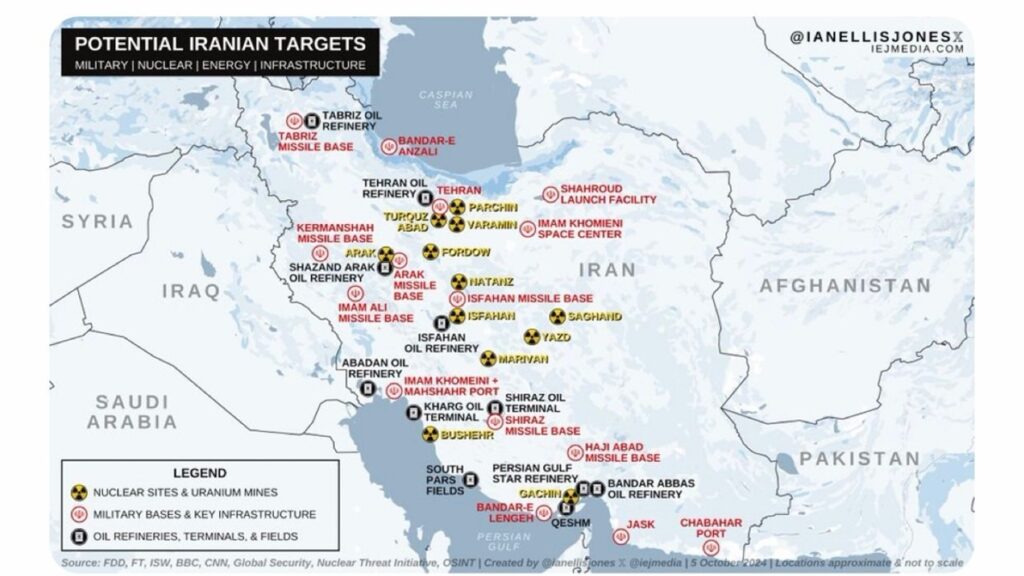The world is in a state of heightened anticipation amid Israeli threats to respond to the Iranian attack on Israeli bases and airports earlier this month.
Delayed Response
Every night, analysts speculate when Israel will retaliate. Initially, American analysts suggested October 7th, coinciding with the anniversary of Operation Al-Aqsa Flood, and then they predicted it would occur during Yom Kippur, last Friday.
The delay in Israel’s response has sparked questions within Israeli circles, especially given the ongoing escalation on the Lebanese front and the recent ground operation conducted on Lebanese territory.
Military Reasons
Majid Al-Qaisi, a retired Iraqi army general, told “Arabi21” that there are several reasons behind Israel’s delayed response, the most important being:
-
- The reinforcement of Israel’s air defense systems by the United States. The Pentagon announced the deployment of the THAAD system along with its crews. This move requires a political decision, which takes time to assess the risks. Additionally, Washington is preoccupied with next month’s elections, and deploying such an advanced system takes time to prepare and assess threats, deployment zones, and logistical support.
-
- The Israeli threat to retaliate against Iran coincides with the ground assault in southern Lebanon, raising the possibility of a regional war. For Israel to manage a multi-front war, involving both international actors and armed organizations, it requires a “surplus of power,” likely involving the formation of supportive alliances, which also takes time.
-
- U.S. and Western political pressures to avoid targeting energy centers and the Iranian nuclear program, meaning Israel must plan a response that avoids severe regional repercussions.

Political Reasons
Al-Qaisi added that Iran is geographically separated from Israel by several countries. If Israel were to carry out a strike on Iran, it would need to traverse the airspace of countries like Iraq, Jordan, and some Gulf states.
These countries have refused to allow such overflight, as they do not wish to become a third party in an Israeli-Iranian confrontation. Iran has indirectly threatened to target any country cooperating with Israel, despite already launching missiles at Israel earlier this month that crossed both Iraqi and Jordanian airspace.
Saudi Arabia, the UAE, and Qatar have informed the U.S. and Iran that they will not allow Israel to use their airspace to strike Iran, according to reports from CNN. Jordan has also stated it will defend its airspace from any unauthorized breaches, regardless of their origin.
Limits of the Response
With uncertainty surrounding the scope of Israel’s potential response, questions have arisen about the scale and nature of the possible attack.
NBC News reported that American officials indicated Israel has narrowed its retaliatory options to striking military targets and energy installations. There is no indication that Israel will target Iranian nuclear facilities or carry out assassinations.
The officials also noted that Israel has not yet made a final decision on how and when to respond to Iran, though a response during Yom Kippur was considered likely.
Al-Qaisi remarked that the method of retaliation remains unclear, as Israel requires military assets capable of reaching targets, such as advanced fighter jets like the F-35, as well as refueling planes. This operation would require the support of a third-party nation, such as the United States, which presents diplomatic challenges in light of the refusal of regional countries to allow the use of their airspace.
To bypass this restriction, Al-Qaisi suggests that Israel might use stealth F-35 jets to fly over certain countries without being detected, denying the overflight if the countries cannot conclusively prove their airspace was breached.
The Challenge of Striking Iran’s Nuclear Reactors
Al-Qaisi stated that striking Iran’s nuclear reactors, which are spread across a wide geographical area, would be extremely difficult for Israel. The Israeli air force lacks the aerial assets needed to deliver the kind of bombs necessary to penetrate deeply fortified underground facilities. However, Israel might target secondary sites related to Iran’s nuclear program, such as support facilities.
He added that the bombs Israel would need to penetrate such fortified targets, like the “MBO” bombs, each weighing 14 tons and capable of penetrating 40 meters underground, can only be delivered by U.S. strategic bombers like the B1 and B2. Even these bombs might not be able to reach reactors buried as deep as 80 meters underground.
Regarding missile capabilities, Al-Qaisi noted that Israel has Jericho missiles with a range of 2,500 kilometers, but they lack the power to penetrate fortified bunkers. However, they could strike command centers, communication hubs, and other non-fortified facilities.
Fear of Iranian Retaliation
Al-Qaisi concluded that Israel is also fearful of Iran’s response. Earlier last month, Iran launched 220 missiles, most of which reached their targets. If Iran were to launch 500 or more missiles simultaneously, employing a saturation attack strategy, even advanced defense systems like THAAD would struggle to intercept them.
The Prospect of Full-Scale War
Axios reported that the Biden administration is prepared to accept a large-scale Israeli attack on Iran but fears that targeting certain sites could spark a regional war.
The Israeli news outlet “Walla” quoted an Israeli official as saying that differences between Israel and Washington regarding a response to Iran have narrowed, though they remain somewhat more significant than what the U.S. prefers.
Previously, Israeli Defense Minister Yoav Gallant warned that the response to the Iranian attack would be “strong, precise, and, above all, surprising and deadly.”
Last week, Iranian Foreign Minister Abbas Araghchi warned Israel against launching any attacks on his country, following the Iranian missile strikes on Israel days prior. He emphasized that Iran’s missiles could reach all their intended targets and warned Israel against testing Iran’s capabilities.
Sunna Files Free Newsletter - اشترك في جريدتنا المجانية
Stay updated with our latest reports, news, designs, and more by subscribing to our newsletter! Delivered straight to your inbox twice a month, our newsletter keeps you in the loop with the most important updates from our website












